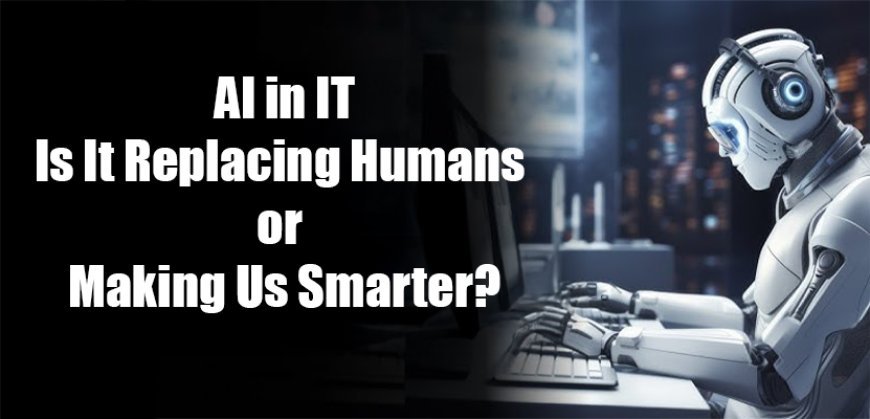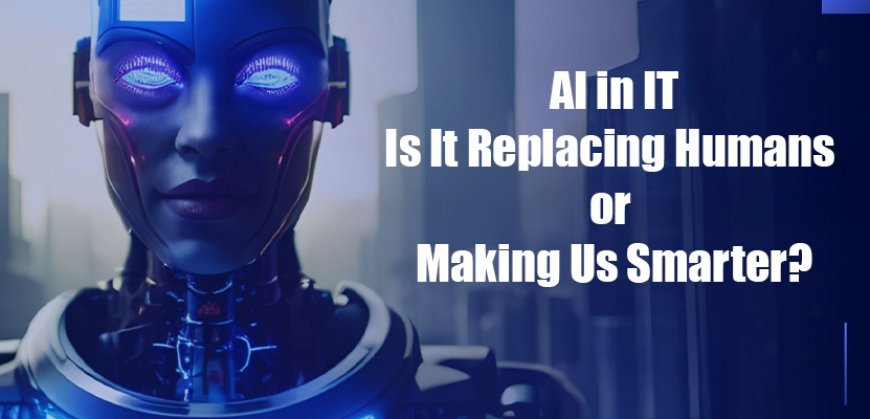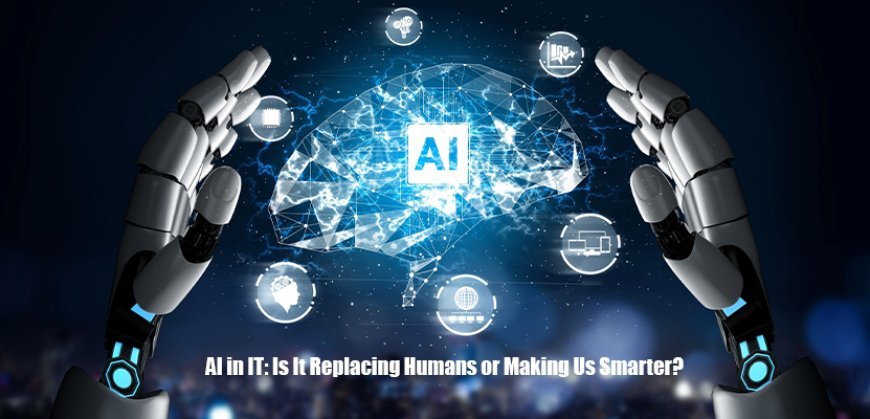AI in IT: Is It Replacing Humans or Making Us Smarter?
Is AI taking over IT or making professionals smarter? It’s automating tasks, boosting security, and reshaping careers. What’s next?
Artificial intelligence is no longer just a buzzword in IT departments. It's working behind the scenes, spotting glitches before they happen, automating repetitive tasks, and in some cases even taking over decision making. It’s fast, tireless, and precise.
But here’s the honest question: Is this progress helping IT professionals do more, or is it slowly making them irrelevant?
Let’s break it down.
AI Is in and It’s Not Slowing Down
By 2023, 72 percent of organizations had already plugged AI into their workflows, a jump from just 50 percent a few years earlier. And with a projected growth rate of 36.6 percent annually until 2030, this tech isn’t going away.
From hospitals to factories, AI is streamlining operations. In retail alone, stores using it for predictions and automation reported double digit sales boosts and an 8 percent jump in profit. That’s not luck. It’s precision.
Big Money, Bigger Moves
Tech giants aren’t betting small. Microsoft is setting aside 80 billion dollars for AI development. Meta? 65 billion dollars. These aren't just experiments. They’re full-scale shifts in how tech will operate moving forward.
In Australia, AI is expected to pump 600 billion dollars into the economy by decade’s end. The impact is no longer theoretical. It’s financial.
More Jobs but Different Jobs
Let’s talk careers. AI isn’t slashing headcount across the board. In fact, job postings for AI related roles are growing 3.5 times faster than others.
But there's a catch. Employers want machine learning, NLP, autonomous systems, and neural network skills. The gap between what companies’ need and what people know is widening. Those willing to upskill? They're the ones staying ahead.
Reality Check: Not Everything’s Smooth
Despite the buzz, 58 percent of companies say their AI results didn’t match the hype. Some tools underdelivered. Others were hard to integrate.
And while there’s talk of job displacement, many startups argue it’s about shifting priorities, not cutting staff. AI takes over the boring stuff, leaving humans to solve bigger problems.
Smarter AI for Specific Business Needs
Instead of relying on one size fits all solutions, companies are building AI tailored to their needs. These leaner, smarter systems are faster to train, cheaper to maintain, and less risky.

Even generative AI, which once seemed out of reach, is becoming accessible thanks to open-source players like DeepSeek, forcing tech giants to rethink their models and pricing.
So… Is AI a Threat or a Teammate?
The truth? It depends on how you approach it. AI can feel like a threat if you stand still. But for those adapting, it’s a powerful partner. It handles the noise so you can focus on what matters.
Think less “replacement,” more reinvention.
Conclusion
AI is reshaping IT, not replacing it. The smartest professionals aren’t resisting change. They’re learning new tools, solving tougher problems, and building the future alongside smart machines.
The opportunity is real. So is the risk. Which side are you on?
FAQs
How is AI currently being used in IT?
AI in IT automates tasks, boosts security, predicts issues, and streamlines support with chatbots.
Will AI replace IT professionals?
AI won’t replace IT professionals but will shift their roles, automating tasks and increasing demand for AI-skilled experts.
What IT jobs are most affected by AI?
AI impacts routine IT jobs like system monitoring, helpdesk support, and software testing while creating roles in AI development, cybersecurity, cloud computing, and data science.
How can IT professionals stay relevant in the AI era?
IT professionals can stay relevant by learning AI, mastering AI tools, gaining expertise in cybersecurity and cloud computing, and keeping up with AI trends.
Is AI making IT work easier or more complex?
AI streamlines IT by automating tasks but adds complexity with model training, ethics, and security risks.

 Admin
Admin 
